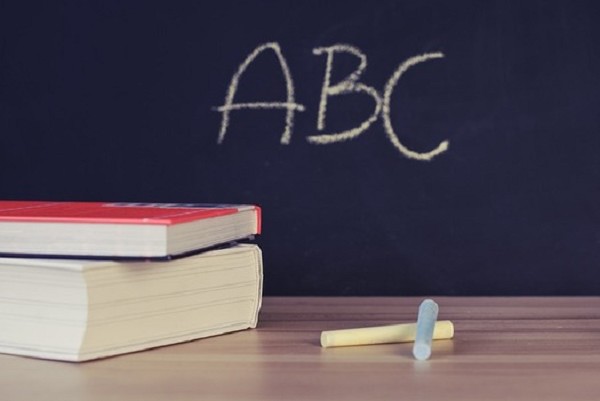| Home | Sports | Community | Arts/Theater | Business | Economy - Local | The Scene |
| History | Health/Fitness | Contests | ||||
KIDS HIT AGAIN: Raiding of K-12 Funds By Legislature Continues
August 20, 2018
Leave a Comment
|
||||||||||||||
| Printer Friendly Story View |

It was the best of times. It was the worst of times.
That time-honored conundrum by Charles Dickens in "A Tale of Two Cities" could aptly be used to describe the situation in present-day America.
As Michigan kids head back to school this month, they'll be yet again missing out on hundreds of millions of dollars in budget funding that lawmakers have diverted elsewhere, according to a new report by the Michigan League for Public Policy (MLPP).
Despite nearly unparalleled prosperity, there are almost unexplainable areas where prosperity has been subsumed by political malfeasance.
One of these areas is in K-12 education in Michigan, as the MLPP notes.
This includes $637 million in lost K-12 funding for the 2017-2018 school year and a record high of nearly $1 billion for the 2018-2019 school year.
The report, "A Hard Habit to Break: The Raiding of K-12 Funds for Postsecondary Education," the Michigan Legislature has diverted $4.5 billion from the School Aid Fund (SAF) and K-12 schools to higher education since 2009. Begun as a one-time "loan" under Governor Jennifer Granholm during the Great Recession, the Snyder administration has made shifting School Aid Fund dollars away from kids and K-12 schools to community colleges and universities one of its primary budget tactics -- a move that is really paying for significant tax cuts for businesses and the wealthy.
"Over the past eight years, the exception, unfortunately, became the rule and using School Aid Fund dollars for higher education went from a last resort to the first order of business," said Gilda Z. Jacobs, president, and CEO of the Michigan League for Public Policy. "Just because you can do something doesn't mean you should. While this gimmick may be legal, it is morally and fiscally irresponsible, and lawmakers should put an end to the practice immediately and permanently."
The ploy has been used in every state budget of Gov. Snyder's tenure, with an increasing percentage of the total community college and higher education budgets coming from School Aid Fund dollars. Three of the past five state budgets have funded community college operations entirely from the School Aid Fund, and the most recent budget more than doubles the SAF dollars going to universities, accounting for a third of their funding. Prior to 2009, the higher education and community college budgets were funded entirely from the General Fund.
The report also points out that in Governor Rick Snyder's first budget for Budget Year 2012, the nearly $400 million taken from K-12 schools was accompanied by a $470 per-pupil cut in the K-12 foundation allowance -- the only year since Proposal A in which the foundation allowance was statutorily cut. The cut was accompanied by a very large tax cut for businesses that cost $1.6 billion, with only part of that amount made up by increased taxes on individuals. Recent increases to the School Aid Fund and per-pupil spending have barely returned to their 2011 levels. When accounting for inflation, the 2018 minimum allowance of $7,631 was equal to only $6,780 in 2011 dollars -- a 7 percent drop in purchasing power and roughly $1,000 below where it should be.
While the Legislature continues to shortchange kids, the Michigan School Finance Research Collaborative, a nonpartisan group of education experts, school officials, business leaders, public policy advocates (including the Michigan League for Public Policy) and others, has recommended that schools receive a base cost of $9,590 per pupil, with additional funding weighted by the number of students in poverty, the number of English language learners, district size and geographic isolation, up to a maximum of $11,482. Recent public polling confirms the public's belief that lawmakers should be spending more -- not less -- on public education.
"Our K-12 schools and higher learning institutions depend on each other and competing for the same dollars hampers them both. Universities and community colleges need well- prepared high school graduates and K-12 schools depend on universities and community colleges to produce skilled workers - including K-12 teachers and school staff - who contribute to the tax base, create jobs and keep communities strong," Jacobs said. "Instead of prioritizing who gets funding, legislators should be funding all of the state's top priorities, and that requires revenue and investment, not tax cuts."
Where has the money gone? This approach has not been a boon for universities and community colleges, whose annual funding has generally remained the same, with minimal increases primarily accounting for inflation. In 2012 and every budget year since, the shift only served to increase General Fund dollars available for other uses, including tax cuts and credits that reduce revenue to the state, like the 2012 tax shift favoring businesses, the repeal of the personal property tax, the increase in the personal exemption and more.
What could that money have paid for? If the $4.5 billion diverted to higher education and community colleges had remained in the School Aid Fund, it could have been used to: Increase the foundation allowance to give more money for each student and school;
*Fully fund Early On, Michigan's early intervention program that identifies and serves infants and toddlers with developmental delays and helps them succeed in K-12 schools;
*Fully fund the At-Risk School Aid program that provides state funds to schools to serve students who are at risk of failing academically or who are chronically absent;
*Increase funding for early literacy, which is particularly important in light of the new third-grade reading law; and
* Expand preschool and early learning programs like increased funding for the Great Start Readiness Program for 4-year-olds and expanding it to 3-year-olds.
How can we change it? Until K-12 schools and programs are financed at levels recommended by experts and that fulfill statutory requirements, the governor and Legislature should put 100% of the School Aid Fund toward making that happen. This includes: using School Aid Fund dollars only to fund Michigan's K-12 public schools and programs at adequate levels; funding universities and community colleges at adequate levels using General Fund dollars and other appropriate federal and local funding sources; and addressing General Fund shortfalls responsibly by increasing revenue sources rather than shifting educational funds away from their intended purposes.
We have long puzzled about this policy and the causes of it. Given widespread affluence, there must be a deeper reason than just tax cuts for businesses and the wealthy. If you readers have an explanation, please write your thoughts that will be featured in a subsequent column.
###
| Printer Friendly Story View |

|
Prior Article
March 5, 2025 by: Stephen Kent St. Patricks Parade 2025 - IT's TIME |

|
Next Article
March 5, 2025 by: Stephen Kent St. Patricks Parade 2025 - IT's TIME |
|
|

Dave Rogers |
|
|
|
Printer-Friendly Story View
0200 Nd: 01-05-2026 d 4 cpr 1
12/31/2020 P3v3-0200-Ad.cfm
SPONSORED LINKS
12/31/2020 drop ads P3v3-0200-Ad.cfm
